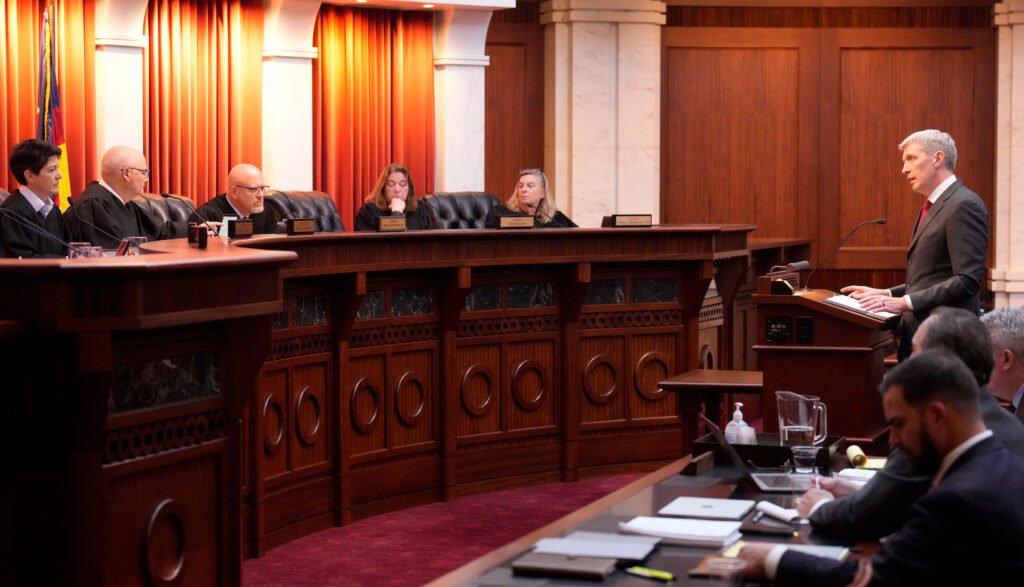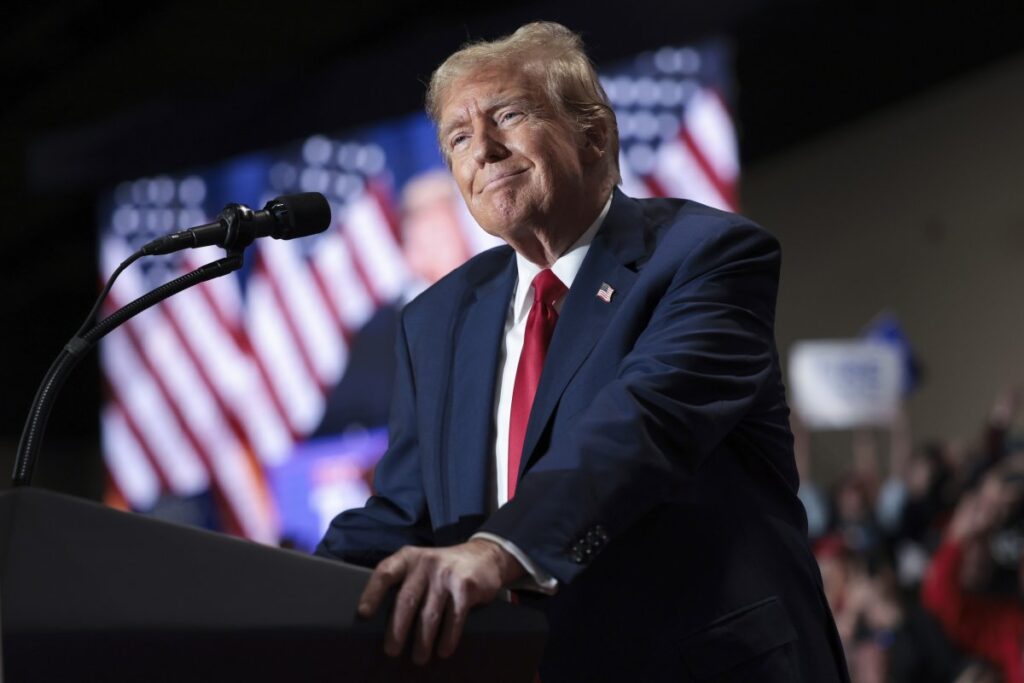The Supreme Court made a significant ruling on Monday regarding former President Donald Trump’s eligibility for the ballot in the wake of the January 6th attacks on the U.S. Capitol. In a unanimous decision, the justices determined that only Congress, not individual states, has the authority to enforce Section 3 of the 14th Amendment. This section was established after the Civil War to disqualify individuals who had previously held office in the government and then supported the Confederacy from running for federal office.

All nine justices concurred that Colorado could not remove Trump from the ballot. However, four of the justices, including Justice Amy Coney Barrett, suggested that the ruling should have stopped there without further deliberation.
The timing of the Supreme Court’s decision is crucial, coming just before Super Tuesday when several states will hold their primary elections. Trump currently leads in the race for the Republican nomination.
Escalation to the US Supreme Court
The dispute began in Colorado last year when a group of voters argued that Trump should be disqualified under Section 3. Although a state court agreed that Trump engaged in insurrection, it decided not to remove him from the ballot. The case was then escalated to the Colorado Supreme Court, which found Trump ineligible but stayed the ruling for the Supreme Court to intervene.

In a detailed opinion released by the justices, they emphasized that the 14th Amendment aimed to strengthen federal authority over states. Additionally, they clarified that the power to enforce Section 3 lies with Congress, not individual states. Allowing states to enforce this section for federal candidates could lead to inconsistencies and chaos in the election process.
The Supreme Court did not delve into other issues raised by Trump in his brief. Justice Barrett, in a separate opinion, expressed that the court should not have addressed the question of how Section 3 should be enforced.
In summary, the Supreme Court’s ruling has major implications for Trump’s eligibility on the ballot in various states. This decision precedes another case involving Trump’s alleged involvement in overturning the 2020 election results, which the justices will hear in late April.
In a recent decision that stirred up mixed reactions, the US Supreme Court ruled to permit former President Donald Trump to stay on the Colorado primary ballot. While Trump celebrated the ruling as a victory, his critics condemned it as a setback for accountability.
The controversy stemmed from Colorado’s attempt to bar Trump from participating in the state’s Republican presidential primary under the 14th Amendment of the US Constitution. This amendment includes an “insurrection clause” that disqualifies candidates from holding public office if they have engaged in insurrection or rebellion against the US government.
Back in December, Colorado’s state Supreme Court determined that Trump had violated the insurrection clause by allegedly inciting the riot at the US Capitol on January 6, 2021. However, the US Supreme Court unanimously ruled that the state lacked the authority to remove Trump from the primary ballot.
Political science professor Thomas Keck from Syracuse University noted that the Colorado case faced an uphill battle from the start. Despite being a long shot, the US Supreme Court’s decision raises concerns about safeguarding US democracy in the face of actions that seem to go unpunished.
Following the ruling, Trump claimed vindication and denounced the case as a politically motivated “witch hunt” aimed at undermining his chances of reelection. Supporters such as Republican Congressman Matt Gaetz and Representative William Timmons applauded the decision, viewing it as a blow against election interference.
On the other hand, Democrats expressed a range of reactions, with some questioning the optics of excluding Trump from the ballot. Quentin Fulks, a manager for President Joe Biden’s reelection campaign, displayed indifference to the Supreme Court’s ruling, emphasizing their focus on defeating Trump through the ballot box.
The Colorado case revolved around Trump’s involvement in the events that transpired after the 2020 election. Following his loss to Biden, a group of his supporters stormed the US Capitol in an attempt to overturn the election results. Six Colorado voters, backed by the watchdog group CREW, sought to bar Trump from the ballot, accusing him of playing a role in inciting the riot.
In their decision, the Supreme Court justices, composed of a conservative majority, concurred that only Congress held the authority to disqualify individuals at the federal level based on charges of insurrection. They underscored the lack of state power to enforce the 14th Amendment in the context of federal offices like the Presidency.
However, there were dissenting voices within the court, warning that this ruling might curtail the judiciary’s ability to interpret the 14th Amendment in the future. Liberal justices Sonia Sotomayor, Ketanji Brown Jackson, and Elena Kagan cautioned against limiting the court’s role in deciding similar matters moving forward.
In conclusion, the Supreme Court’s ruling allowing Trump to remain on the Colorado primary ballot cast a spotlight on the delicate balance between electoral integrity, accountability, and legal interpretation. The decision’s ramifications prompt reflections on the implications for the rule of law and the checks and balances within the US democratic system.

